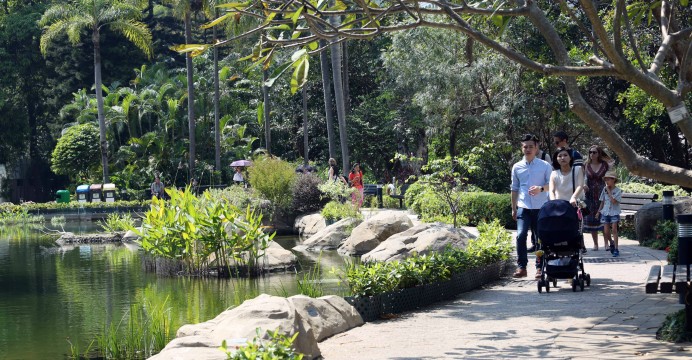Learn about brain health and nootropics to boost brain function
Getting back to nature for better mental health


Many people in Hong Kong are feeling depressed. According to a study published in July by the Li Ka Shing Faculty of Medicine at the University of Hong Kong, 9.1 percent of the respondents were suspected to be suffering from depression, a level never seen before.
Professor Gabriel Leung Cheuk-wai, dean of the faculty, said the current mental health problem in Hong Kong can be described as an “epidemic”.
There are agencies providing emotional support services in the community. One is fortunate to have professional support, but everyone should also know how to save oneself.
The medical community continues to study depression, its relationship with the environment and individuals.
Studies from various universities and research institutions – Harvard University and Stanford University of the United States; Central Institute of Mental Health in Mannheim, Germany; University of Tampere, Finland, etc. – have consistently seen a strong connection between time spent in nature and reduced stress.
One study says that being close to nature could help improve mental health. A walk in a natural setting – the countryside, a park or even an outdoor sports field – could do wonders. It can be as short as 15 minutes, although it is recommended that it be done regularly, say, a few days a week. You can walk alone or together with friends.
Another large-scale emotional health study that tracked 10,000 people in the past 20 years indicates that proximity to nature not only improves memory and concentration but also enhances one’s mood.
In another study, researchers recruited about 100 white-collar workers in “knowledge-intensive and emotionally demanding” jobs, including media, education, finance, public administration, and healthcare.
The subjects were required to alter their habits a bit. Instead of taking long lunches with their colleagues, they were asked to have short and light lunches. Then half of them were asked to spend five minutes walking in the park, while the other half were told to spend 15 minutes in soft gymnastics such as deep breathing and stretching in a quiet corner of the office.
The results showed that those who spent time walking in the park after lunch experienced better concentration and less fatigue in the afternoon.
As for the group doing soft gymnastics, their mental state also improved, although the results were not as obvious as those of the park walkers.
The researchers said after a nature walk, the subjects showed lower activity in the prefrontal cortex, a region of the brain that focuses on negative emotions. People tend to calm down after even just a brief encounter with nature.
That’s because the calming sounds of nature – birds, wind, rain, sea waves – as well as the refreshing sight and smell of vegetation help lower blood pressure and the level of the stress hormone cortisol.
In recent years, the government has planted more than 20,000 trees and 5 million bushes in the urban areas, helping people stay close to nature and thereby helping improve their physical and mental health as they face their daily challenges.
RT/CG
Click here to view full article
